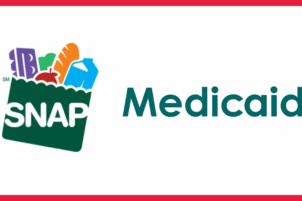Washington, D.C., May 19 – As more Americans with and without disabilities are caught up in the economic consequences of the COVID-19 pandemic, people are wondering where to find answers to life-or-death questions.
What do I do if I’m a person with a disability and lost my job because of COVID-19?
You are not alone. A monthly report published by the University of New Hampshire’s Institute on Disability (UNH-IOD), shows that nearly one million working-age people with disabilities lost their jobs. That represents a 20 percent reduction of the number of workers with disabilities in our nation’s economy. There is a significant question whether those jobs will ever come back.
The U.S. Department of Labor’s (DOL) website has a comprehensive run-down on what you as an individual with or without disabilities needs to know about accessing unemployment benefits if you are an eligible worker.
Unemployment insurance (UI) is a joint state-federal program that specifically helps workers who have lost their jobs. With more than 22 million workers now out of their jobs, UI is more important than ever before.
How do I know if I am eligible?
Each state has its own guideline around who does or does not qualify for unemployment insurance benefits. Generally speaking, if:
- You lost your job through no fault of your own or you were separated due to a lack of available work.
- You also meet specific work and wage requirements.
Then you should qualify for unemployment benefits. However, beyond those basic guidelines, each state has different rules in terms of wages earned and time worked. To find out what your state requirements and guidelines are, visit this website: https://www.careeronestop.org/LocalHelp/UnemploymentBenefits/find-unemployment-benefits.aspx.
DOL also maintains a great list of frequently asked questions (FAQs): https://www.careeronestop.org/LocalHelp/UnemploymentBenefits/unemployment-benefits-finder-help.aspx.
FYI: It generally takes two to three weeks after you file your claim to receive your first benefit check.
What about COVID-19 specific unemployment resources?
In response to the pandemic, DOL issued new guidance to address COVID-19 in the workplace and different scenarios involving workers at risk of losing their jobs because of the virus. You can read that guidance online: https://www.dol.gov/newsroom/releases/eta/eta20200312-0.
Who can I talk to for more details?
The DOL’s toll-free call center can assist workers and employers with questions about job loss, layoffs, business closures, unemployment benefits and job training: 1-877-US-2JOBS (TTY: 1-877-889-5627).
What other resources does DOL offer?
DOL maintains a dedicated page for job seekers and unemployed workers looking to access the workforce system. That page includes specific information about finding new job training opportunities as well as disability-specific resources.
What if I’m on SSI or SSDI, but I lost my part-time job? Can I claim unemployment?
The answer really depends on whether you are receiving Supplemental Security Income (SSI) or Social Security Disability Insurance (SSDI) benefits.
For people receiving SSDI, unemployment income is counted as unearned income and DOES NOT count towards the Substantial Gainful Activity (SGA) limit. This means that people who receive SSDI, but had been working part-time, can claim unemployment without worrying about the usual income limit.
SSI is different from SSDI but unemployment income also counts as unearned income for SSI. However, SSI benefits may be offset by the amount of unemployment received. SSI has a strict $2,000 asset limit. If SSI recipients receive benefits that would push them over the asset limits, they should consider spending those funds right away to purchase needed supplies.
If a person with a disability had been working but lost their job because of COVID-19, they will need to apply for the new Pandemic Unemployment Assistance (PUA) program.
The Arc has a great website with lots of details on navigating unemployment as a person with a disability: http://thearc.org/wp-content/uploads/2020/04/Unemployment-Fact-Sheet_4-16-20.pdf.
What about accessing food benefits?
From Benefits.gov: “Supplemental Nutrition Assistance Program (SNAP) is the largest federal nutrition assistance program. SNAP provides benefits to eligible low-income individuals and families via an Electronic Benefits Transfer card. This card can be used like a debit card to purchase eligible food in authorized retail food stores.”
The U.S. Department of Agriculture (USDA) runs the SNAP program and maintains a great website about SNAP eligibility here: https://www.fns.usda.gov/snap/recipient/eligibility.
While SNAP is a federal program, like most benefits, it is run by state agencies. To find out about your home state’s rules on SNAP benefits, visit this website: https://www.fns.usda.gov/snap/state-directory.
Before the pandemic, 11 million people with disabilities depended on the Supplemental Nutrition Assistance Program’s (SNAP) nutrition benefits to put food on the table. That number has increased significantly as people with and without disabilities have lost their jobs and hungry children have lost food access with school closures. In response, more states are seeking a waiver from the U.S. Department of Agriculture to allow SNAP recipients to use their benefits for online grocery deliveries.
Governors in 13 states (AK, IL, KS, ME, MS, MT, NH, ND, OH, SC, SD, UT, and VA) have not yet announced any plans to ensure their residents don’t have to risk their lives to get food.
Learn more about the issue or take action to help your state here: https://www.respectability.org/snap.
What about food benefits for women and children?
The USDA also runs the Special Supplemental Nutrition Program for Women, Infants and Children (WIC) program to help low-income pregnant, breastfeeding and non-breastfeeding postpartum women, and to infants and children up to age five: https://www.fns.usda.gov/wic/wic-how-apply.
Like most benefit programs, WIC has strict eligibility requirements that specifically limit the pool of people who can make use of these resources. To determine your eligibility for WIC, visit: https://www.fns.usda.gov/wic/wic-eligibility-requirements.
Like SNAP, WIC is federally funded but is run by individual state governments. To find contact information for your state WIC program, visit: https://www.fns.usda.gov/contacts?f%5B1%5D=program%3A32.
How do I order food online for delivery?
To limit their risk of exposure to the virus, many people with and without disabilities have opted to switch entirely to online grocery deliveries. Unfortunately for many people with disabilities, this is an inaccessible or unavailable option.
Popular options for online grocery deliveries include Instacart, Amazon and Walmart. In 35 states, people with disabilities now can or will soon be able use their SNAP benefits for online grocery deliveries. However, there are still states that have taken no action to help millions of people with disabilities put food on the table. RespectAbility and other disability organizations such as the National Disability Rights Network (NDRN) are actively working to solve this and other critical, COVID related economic challenges.
What about delivery fees?
Unfortunately, even if you are in a state that has joined the SNAP Online Purchasing Pilot, you will need to cover the cost of delivery fees.
What federal agencies or programs are providing information to help people with disabilities during the COVID-19 pandemic?
The Administration for Community Living (ACL) has been leading disability related efforts to respond to COVID-19. They have a great website that has information for aging and disability programs, as well as videos in American Sign Language (ASL) and Spanish language materials.
Visit their extensive website with resources and information: https://acl.gov/COVID-19.
What about Veterans with Disabilities?
Like ACL and DOL, the Department of Veterans affairs has created an extensive website to cover VA specific issues in the COVID-19 pandemic. You can use the website to read the latest about COVID-19, make appointments or access other benefits/services: https://www.va.gov/coronavirus-veteran-frequently-asked-questions.
If you are not yet connected to a Veterans Service Organization (VSO), why not connect with one now via the internet? For example you could connect with Paralyzed Veterans of America (PVA) https://pva.org/find-support, Disabled American Veterans (DAV) https://www.dav.org or Iraq and Afghanistan Veterans of America (IAVA) https://iava.org.
Where can I find more local information about COVID-19 and other resources?
If you are local to the RespectAbility Washington, D.C., metro office, then check out the Montgomery County Government (of Maryland)’s COVID-19 page: https://montgomerycountymd.gov/hhs/rightnav/coronavirus.html.
If you are a RespectAbility subscriber in New York City, check out this local page: https://www1.nyc.gov/site/doh/covid/covid-19-data.page.
For our California subscribers, there are several great websites that provide more detailed information about COVID-19 and how our communities are responding. First, we recommend viewing http://publichealth.lacounty.gov/media/Coronavirus. Second, Disability Benefits 101, a great website with comprehensive details about living and working as a Californian with disabilities, recently added a new COVID-19 resource page: https://ca.db101.org/news/news_8258.htm.
As of April 28, California’s SNAP program, CalFresh, covers online grocery delivery. This benefits approximately 1.1 million Californians with disabilities who depended on SNAP benefits. For details on California’s branch of the SNAP program, please visit: https://www.freshebt.com/state/california.
To take advantage of online food delivery, Californians can visit GetCalFresh.org or call 1-877-847-3663. Los Angeles residents also can call 888-863-7411 for food delivery.
Are you part of the intellectual and/or developmental disabilities (I/DD) community? If you are, then check out the Arc’s comprehensive website here: https://thearc.org/covid.
What do I do if I am at-risk of COVID-19 and have roommates or live in a group home and people are not practicing social distancing or taking precautions?
This is a serious matter and your safety needs to come first. Consider preparing a script of what you want to say before saying it.
Remember to be respectful of everyone’s emotional needs but firm about your own health and safety.
Have a conversation with your roommate about documenting when and if people are coming. That way you can tell public health authorities if either of you comes down sick.
This great article from TODAY has more ideas on how to handle this delicate issue: https://www.today.com/health/social-distancing-how-talk-those-who-aren-t-doing-it-t180088
Job and Training Information
- American Job Centers
- Senior Community Service Employment Program
- Trade Act Programs
- Youth Services
- USA Jobs
- Employment Opportunities at the Department of Labor
- mySkills myFuture
- Occupational Outlook Handbook
- Occupational Outlook Quarterly
Disability Resources
- Job Accommodation Network (JAN)
- Office of Disability Employment Policy (ODEP)
- Office of Disability Employment Policy (ODEP) Publications
- Self-Employment and Entrepreneurship
For more resources and updates from RespectAbility about the COVID-19 pandemic and its effects on the one-in-five people who live with a disability, please visit www.RespectAbility.org/covid-19.








I am disabled and had a tsunami prior to the pandemic. I was hospitalized in rehabilitation assisted and independent living. I was out of my home for eight month spent $85,000 dollars in those eight months and another $100,000 since 01/15/19 to date. I’m looking to consolidate some debt with no assistance insight.